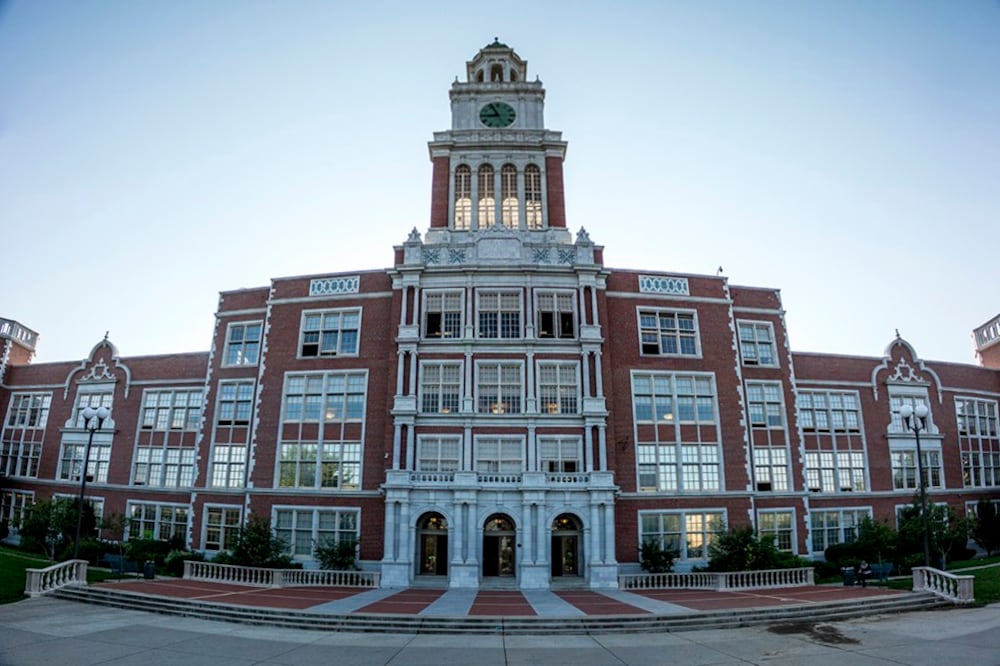A week after hundreds of Denver’s East High School students marched to the state Capitol protesting the shooting death of their classmate, a smaller crowd at a student-organized summit asked local officials for solutions to gun violence.
“We shouldn’t have to be here,” sophomore Gracie Taub, a member of the club East Students Demand Action, told the crowd. “Luis should be here.”
Sixteen-year-old East High student and soccer player Luis Garcia was shot just outside the school on Feb. 13 and died from his injuries 2½ weeks later. Denver Public Schools Superintendent Alex Marrero said at the summit that the incident was not the first instance of gun violence in and around Denver’s schools this school year, nor the last.
“It’s not because our hallways are threatening,” Marrero said. “It’s not because our educators are monsters. It’s not what’s happening in our schools. It’s what’s happening in our community.”
The 14 panelists, who also included two Denver city council members, two state lawmakers, three medical doctors, three violence prevention experts, East High Principal Terita Walker, and Denver Police Chief Ron Thomas, agreed that limiting young people’s access to guns should be part of the solution. Parents and family members need to lock up guns at home, they said.
State Sen. Chris Hansen and state Rep. Alex Valdez, both Denver Democrats, referenced other bills that Colorado lawmakers are considering this year, including one to require a three-day waiting period for gun purchases, one raising the age to buy a gun from 18 to 21, and one to add teachers to the list of people who can request someone be banned from owning a gun.
But panelists also agreed that it will take more than laws to curb youth gun violence.
“Violence is always going to exist,” said Felicia Rodriguez, youth violence prevention program manager for the city’s Office of Children’s Affairs. “I think the most important thing that everyone has been expressing here this evening is the importance of building healthy, positive relationships with youth. That’s the impact, from an adult lens, that we need to really focus on.”
Johnathan McMillan, the director of the Colorado Office of Gun Violence Prevention, said young people who have a trusted adult in their life are less likely to be impacted by violence, “whether that’s a law enforcement officer, a teacher, a counselor, a principal, a community member.”
The Denver school board voted in 2020 to remove police officers from Denver schools. East High was one of 18 schools that had an armed officer at the time. Asked whether police should have a larger presence in Denver schools again, both the superintendent and police chief said the answer should come from the students.
“If the youth and the parents of these youth that are going to these schools feel like the solution to having safer schools is to have officers in those schools, then certainly that’s something I will comply with, certainly with the school board’s direction,” Chief Thomas said.
“But I don’t think that the police are the only solution.”
Dr. Joseph Simonetti, a physician and researcher at the University of Colorado who focuses on firearm injury prevention, said having police on campus can lead to an increase in student arrests and tickets. Prior to the removal of school resource officers, data showed that Black students in Denver were disproportionately ticketed and arrested. Since SROs were removed, data shows fewer Denver students have been referred to law enforcement.
The panelists also called for more investment in youth mental health services. Dr. Steven Federico, a pediatrician who serves as the chief government and community affairs officer for Denver Health, said that although the number of Denver Health clinics inside schools has grown over the years, the need for mental health services is “insatiable.”
“It is the number one requested service of our clinical teams,” he said. “It needs to be better funded. It needs to be better staffed.”
Whatever the solutions, Walker, the principal, said they need to come quickly.
“The dream for me is, for the kids I’m looking out at right now and the kids that are doing this work, the immediacy around the response so that they can benefit from and feel the effects of the work that they’re doing,” she said. “We don’t want another kid to be affected.”
Melanie Asmar is a senior reporter for Chalkbeat Colorado, covering Denver Public Schools. Contact Melanie at masmar@chalkbeat.org.






